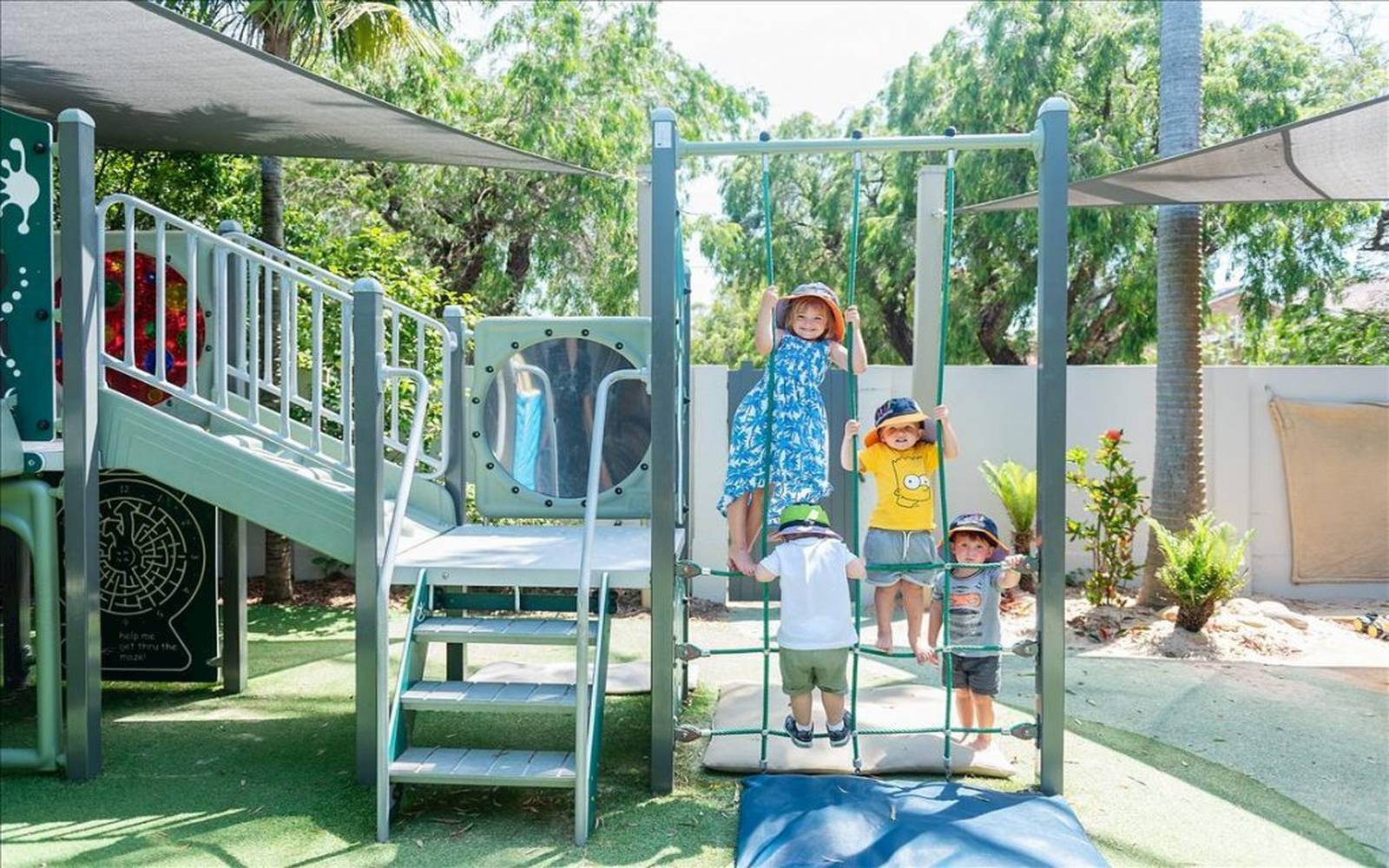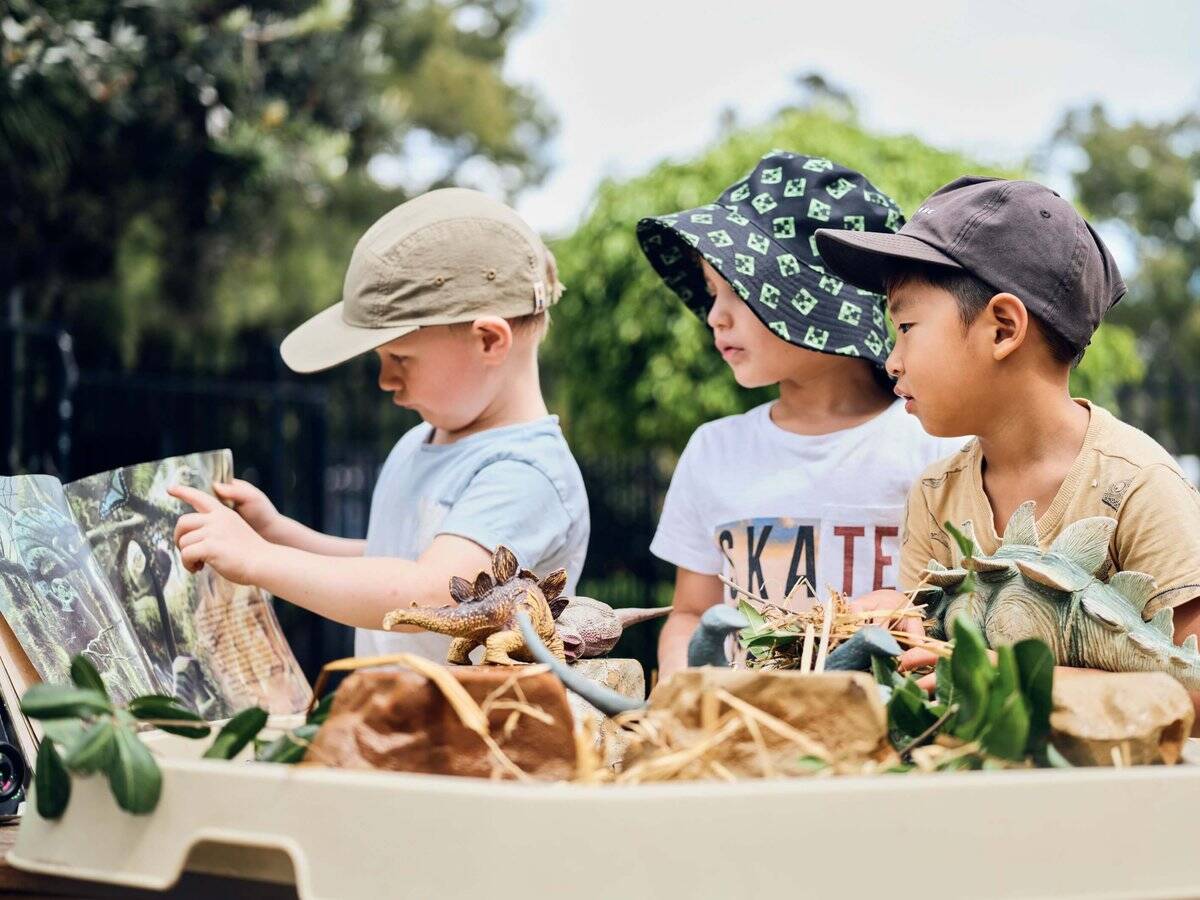About Verified ( ) Centres
What Is a Verified Centre?
Verified Centres are vetted by Care for Kids. As part of this process, Verified Centres undergo a financial assessment to ensure their reliability and credibility. We maintain an ongoing relationship with Verified Centres and provide them with support so they can offer you fresh and accurate information.
Learn more about our T&Cs.
Why Choose a Verified Centre?
- Trust & Peace of Mind - listing data for Verified Centres is regularly checked and updated
- Transparency – Verified Centres adhere to our evaluation process so you can make informed decisions
- Simpler Search – Spot trusted providers at a glance and save time finding quality childcare





Kindaburra Childrens Centre overview
Kindaburra Early Learning Centre and Pre School is an Australian family owned and operated Long Day Care and Pre School situated in Matraville within Sydney's Eastern Suburbs. We have been in operation since 1999.
Our highly dedicated and professional team are committed to providing the best care and education to children from 0-5 years.
We have a large and bush-like outdoor playground that sets us apart from other centre's. Our playground and rooms are age-appropriate and we are guided by our philosophy: Children Always Come First.
We strive to work alongside parents to bring out the best qualities in our children through high quality programs, structure and purposeful activities. Children enjoy a friendly and safe environment where they have opportunities to learn and reach their potential.
For more information, please visit our website at www.kindaburra.com.au or call 0415 128 822
Recommended centres



Fees & Vacancies
Kindaburra Childrens Centre Service features
See more (5)Kindaburra Childrens Centre service include:
Location
1 Jersey LaneMatraville, NSW, 2036

Centre Reviews
My 2 kids attended kindaburra until mid 2024. We were so sad to leave but needed to due to relocation. The staff are... My 2 kids attended kindaburra until mid 2024. We were so sad to leave but needed to due to relocation. The staff are so caring and loving. My kids adored them. The centre has such a beautiful community feel. Really happy our kids experienced such a beautiful childcare. Ella and joshie miss their teachers and friends so much! Read more
Great outdoor space, and caring supervisors Great outdoor space, and caring supervisors
Thank you so much for your kind words Tanja! Our team works hard to provide excellent care and education to our kids, and your feedback really motivates us to keep doing our best. We truly appreciate your support ❤️
We had a terrible experience sending my 13 month old to this centre. The administration was completely incompetent, has no regard to the... We had a terrible experience sending my 13 month old to this centre. The administration was completely incompetent, has no regard to the wellbeing of the child and focussed only on receiving their payments.The building and its equipment are old and falling apart, the wooden floors peeling to the extend my baby's socks were ripping and covered with dirt. The centre has no clear policy on information parents when their child doesn't have adequate oral intake, my child was starving and dehydrated when she was picked up and I wasn't informed. When this was raised with the management I received passive aggressive replies to my emails. The educators are mostly competent, however overwhelmed as they are understaffed and have no capacity to provide adequate attention to each child. There is no real time communication of the child's daily activities such as meal and sleep times and parents are asked to go through the centre's handwritten charts at the end of the day if they are interested. Once we finally decided to leave, forfeiting the bond, we still had an excess payment with the centre to be refunded, as they were receiving payments from both parents and Centrelink in the initial few weeks. I was asked to wait for 6 weeks to settle the accounts to receive this money and once I contacted the director after 7 weeks, her response was that she has no record of my child attending the service. After battling another couple of weeks with multiple emails, most of which were unanswered, we finally received our credit. I hope the management reflects on their shortcomings and improves the service, so no other family goes through this. Read more


